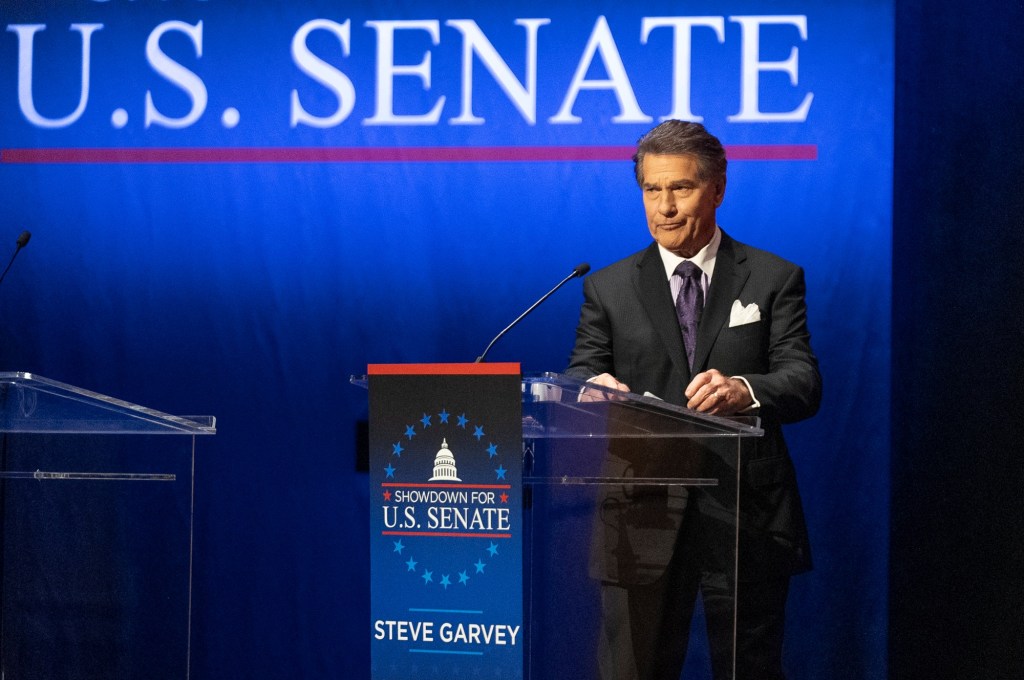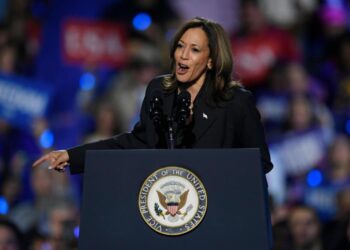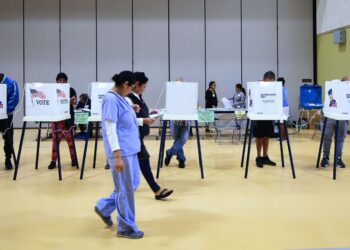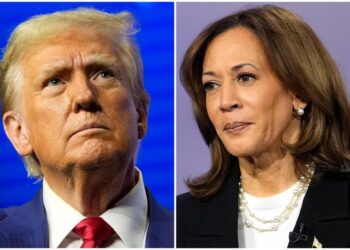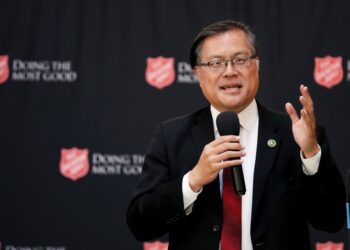When the top four candidates for California’s U.S. Senate race took the debate stage Monday night, the three Democrats and moderators had the same question for Republican candidate Steve Garvey: Who will he vote for in this year’s presidential election?
It was a question that Garvey, a former Los Angeles Dodger, has seemingly tried to evade on the campaign trail, including during the debate.
“When the time comes, I’ll do exactly what I should do: I’ll look at the two opponents, I will determine what they did and at that time, I will make my choice,” Garvey said before arguing that the U.S. was safer under former President Donald Trump than President Joe Biden.
Garvey’s refusal to say outright whether he’d back the man who is most likely to lead his party’s ticket again this year garnered rebukes from his Democratic competitors, Reps. Adam Schiff, Barbara Lee and Katie Porter.
But could that strategy — avoiding aligning himself with an increasingly polarizing figure in American politics — be a smart one, especially given California’s unique primary system?
In most primary elections in California, including a U.S. Senate race, the top two vote-getters in the March 5 election advance to the general, regardless of party affiliation.
“Garvey’s obviously decided that it’s worth the gamble to potentially alienate Trump voters here in order to reach a broader base of voters,” said Dan Schnur, a former campaign consultant who teaches about political messaging at UC Berkeley and USC.
“There certainly aren’t enough Trump supporters in California to elect a senator; what’s less clear is whether or not there’s enough of them to get a Senate candidate in the runoff. Garvey’s obviously decided there aren’t enough to get him through the primary so he’s trying to keep his distance.”
Annette Eliot, a Trump supporter and president of the Huntington Harbour Republican Women Federated, was less concerned by Garvey’s…
Read the full article here

